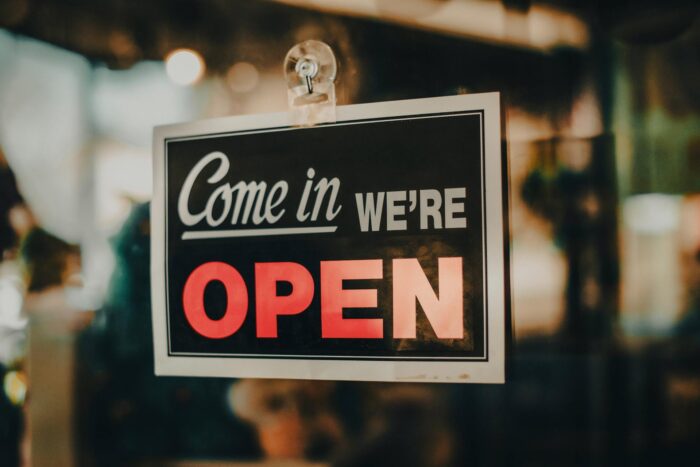For years, Google has been the dominant search engine, the unquestioned leader in helping us find information.
But here’s the thing… Google is now facing more competition than it ever has before. Sure, it’s still the biggest player in the game, but when it comes to certain searches – like finding new restaurants or hidden gems – people are turning to other options.
Like Instagram and TikTok – these social media platforms give us a richer, more engaging experience with real reviews, images, and videos from real people. These social media platforms are catching up with Google pretty fast in terms of delivering information.
This shift towards using social media platforms for searches isn’t just my personal preference. Recent trends show that more people in Ireland and Europe, are using social media as their go-to for discovering everything from restaurants to fashion.
It’s becoming clear that “Search Everywhere Optimisation” is the future, and brands need to adapt with a holistic search optimisation strategy.
Why Instagram and TikTok Are Becoming Search Engines
Now, let’s talk numbers. According to a 2023 report, more than 40% of Gen Z users across Europe are now turning to social media platforms like Instagram and TikTok for search, rather than Google. Even Google itself has acknowledged this shift.
In Ireland, the trends are no different, young people (myself included!) are especially drawn to these platforms when discovering new restaurants, travel destinations, or entertainment options because they want quick, visual answers.
Plus, people are sharing video content with friends twice as much as any other type of content, which amplifies the reach and effectiveness of social media searches.
With platforms like Instagram even overtaking Google for searches related to food, lifestyle, and travel, it’s clear that social media has become a serious competitor in the search landscape.

My Experience: Discovering Restaurants on Instagram
I find Instagram a far better tool than Google when it comes to searching for restaurants. Let me give you an example. The last time I wanted to find a good place to eat in Dublin, I didn’t even bother with Google.
Instead, I went straight to Instagram. All I had to do was search for #DublinFood, and I was instantly bombarded with beautiful images of mouth-watering meals from all kinds of restaurants in the city.
The thing is, these aren’t just promotional pictures from the restaurants themselves. They’re real photos taken by foodies, bloggers, and everyday people who’ve actually been there and eaten the food.
You get to see what the dishes really look like – not just the polished version on a menu, and often, the comments are full of useful reviews from people who’ve already tried the place.
Even better, many of the posts come with location tags, so you can easily find out exactly where the restaurant is and how to get there. I ended up choosing a restaurant based on its Instagram presence, and it didn’t disappoint.

The Power of Reviews and Community Engagement
One of the things I love most about searching on social media platforms is the sense of community. When you Google something, you get the typical list of reviews, often from people you don’t know or trust.
But when you’re on Instagram or TikTok, the reviews feel more authentic. They’re coming from people who are sharing their personal experiences, and there’s often a level of engagement in the comments that you just don’t see on Google.
For instance, you’ll often find people commenting on a foodie’s post with their own experiences, tips, or recommendations. The original poster might even respond, and suddenly, you’ve got a mini-community of food lovers helping each other out.
It’s a more interactive and engaging way to get reviews and recommendations – and it’s much more fun than just reading a block of text on Google.
TikTok is also brilliant for this, as many of the videos are filled with comments from people asking questions, offering suggestions, or just sharing their thoughts on the content.
It’s not just about finding information – it’s about connecting with a community of people who are interested in the same things as you.

What This Means for Brands: Adapting to the New SEO
So, what does this shift towards search everywhere optimisation mean for brands? It means that optimising for Google is no longer enough. If you’re an owner of any kind of business, you need to be active on social media platforms.
These are the places where your customers are searching, so you need to make sure you’re showing up in those searches. Here are a few checkboxes for brands looking to optimise for social media searches:
1. Create Engaging Visual Content
To succeed in today’s competitive social media landscape, you need to craft content that goes beyond aesthetic appeal. Visuals should not only be high-quality but also purpose-driven, aligning with the brand’s message and speaking directly to the target audience’s interests.
Prioritising videos, carousels, and other dynamic content formats can significantly enhance engagement and reach.
2. Leverage Hashtags and Geotags Strategically
Hashtags and geotags are powerful tools for increasing the discoverability of content within social platforms. By conducting thorough research on trending and relevant hashtags, businesses can position their content where their audience is most active.
Geotagging also helps local businesses enhance their visibility among users searching for services or products in specific locations.
3. Collaborate with Influencers
Partnering with influencers offers businesses the opportunity to tap into established and trusted communities. These partnerships can provide authentic endorsements that resonate with audiences on a more personal level, driving both awareness and engagement.
Selecting influencers whose values align with your brand is critical to building trust and long-term relationships with potential customers.
4. Encourage and Amplify User-Generated Content
User-generated content (UGC) has the potential to boost credibility and reach exponentially. By motivating customers to share their experiences with your brand, you not only build a community but also gain valuable organic exposure.
Brands can encourage UGC through campaigns, contests, and by engaging with customer content, thereby amplifying positive word-of-mouth across social media channels.

Search everywhere optimisation is shifting the way we search for information and it’s not just Google leading the charge anymore.
Social media platforms have become powerful tools for discovery, but we’re also seeing the rise of AI-driven search assistants like ChatGPT and Perplexity.
These AI tools are changing the way people find answers, offering quick, conversational insights that go beyond traditional search engines.
As more users experiment with these technologies, it’s clear they are becoming part of the broader search landscape, influencing how we access information and make decisions.
We’ve got more platforms in the market now than ever before. Facebook didn’t die when Instagram came around, TikTok didn’t kill off Instagram, and YouTube is still very much alive and kicking. Snapchat’s still hanging in there, and Pinterest is thriving too.
What’s clear is that this landscape will only keep evolving, with more platforms making their mark.
But here’s the kicker, it’s not just about creating beautiful content anymore. Sure, eye-catching visuals are great, but if you want to be discovered on these platforms, you need a holistic search optimisation strategy.
Whether it’s through the right hashtags, engaging captions, or strategic influencer partnerships, making sure your content is not only pretty but also searchable is key.
If you want help getting your social content to rank and be discoverable, drop us a message.

